"It is our duty to lend our voices to the Iranian women who have been silenced"
Mahsa Amini's brutal death has triggered violent civil unrest across Iran and protests against the regime, but as the government blocks the country's access to the internet, Features Editor Jenny Proudfoot says it is up to us to keep the conversation going.

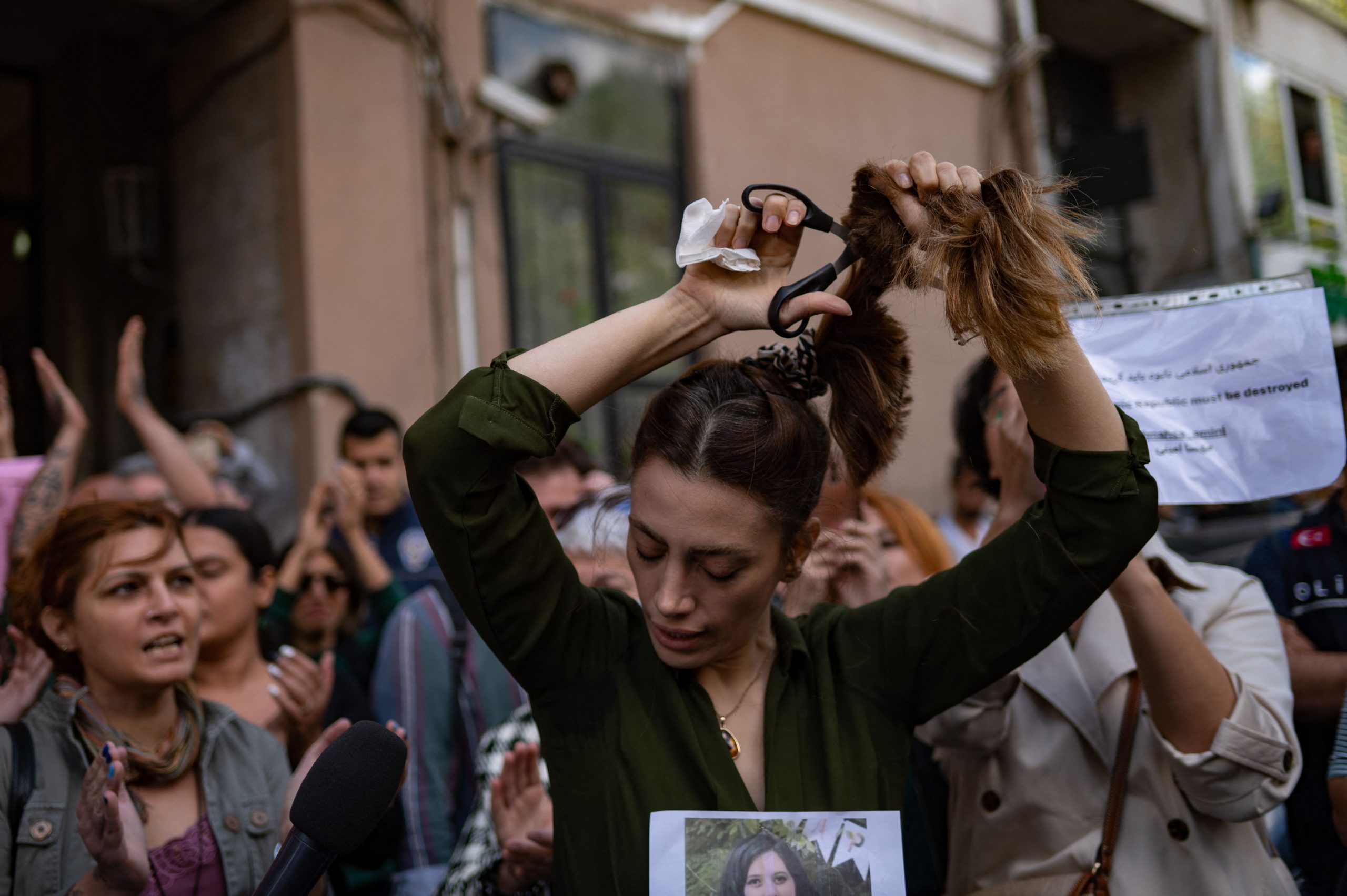
Celebrity news, beauty, fashion advice, and fascinating features, delivered straight to your inbox!
You are now subscribed
Your newsletter sign-up was successful
Mahsa Amini's brutal death has triggered violent civil unrest across Iran and protests against the regime, but as the government blocks the country's access to the internet, Features Editor Jenny Proudfoot says it is up to us to keep the conversation going.
On 13 September, a 22-year-old Iranian woman was arrested in Tehran by the Islamic Republic's "morality police" for wearing her headscarf too loosely. After reported torture by the authorities, she fainted in police custody and fell into a coma. Three days later, she was declared dead by state television.
Her name was Mahsa Amini, and she has become "the voice of anger of the Iranian people".
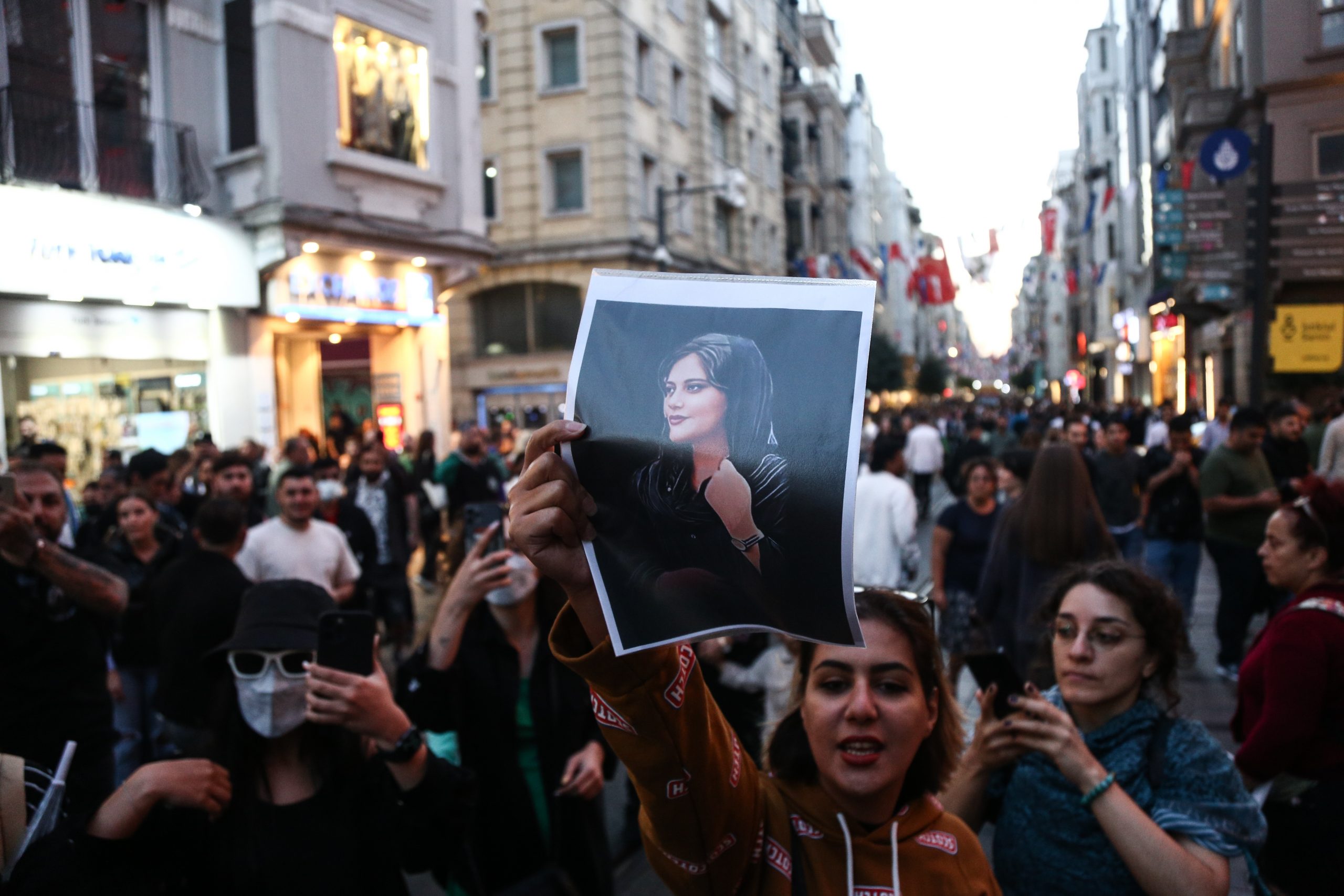
Mahsa Amini's brutal death has triggered violent civil unrest across Iran, with today marking the 11th consecutive day of protests against the government's regime and its oppression of women, particularly in relation to its hijab laws.
Hijabs and loose-fitting clothing have been mandatory for women in Iran since the 1979 Islamic Revolution, with the Gasht-e Ershad (Guidance Patrols) policing how women dress and enforcing punishment in cases of violation.
It is the women who have been living in fear under these laws that are now at the forefront of this country-wide protest, taking to the streets for the first time since 1979. Together, they are bravely demanding freedom over their dress code, calling for an end to violence and standing up to oppression in the name of Mahsa.
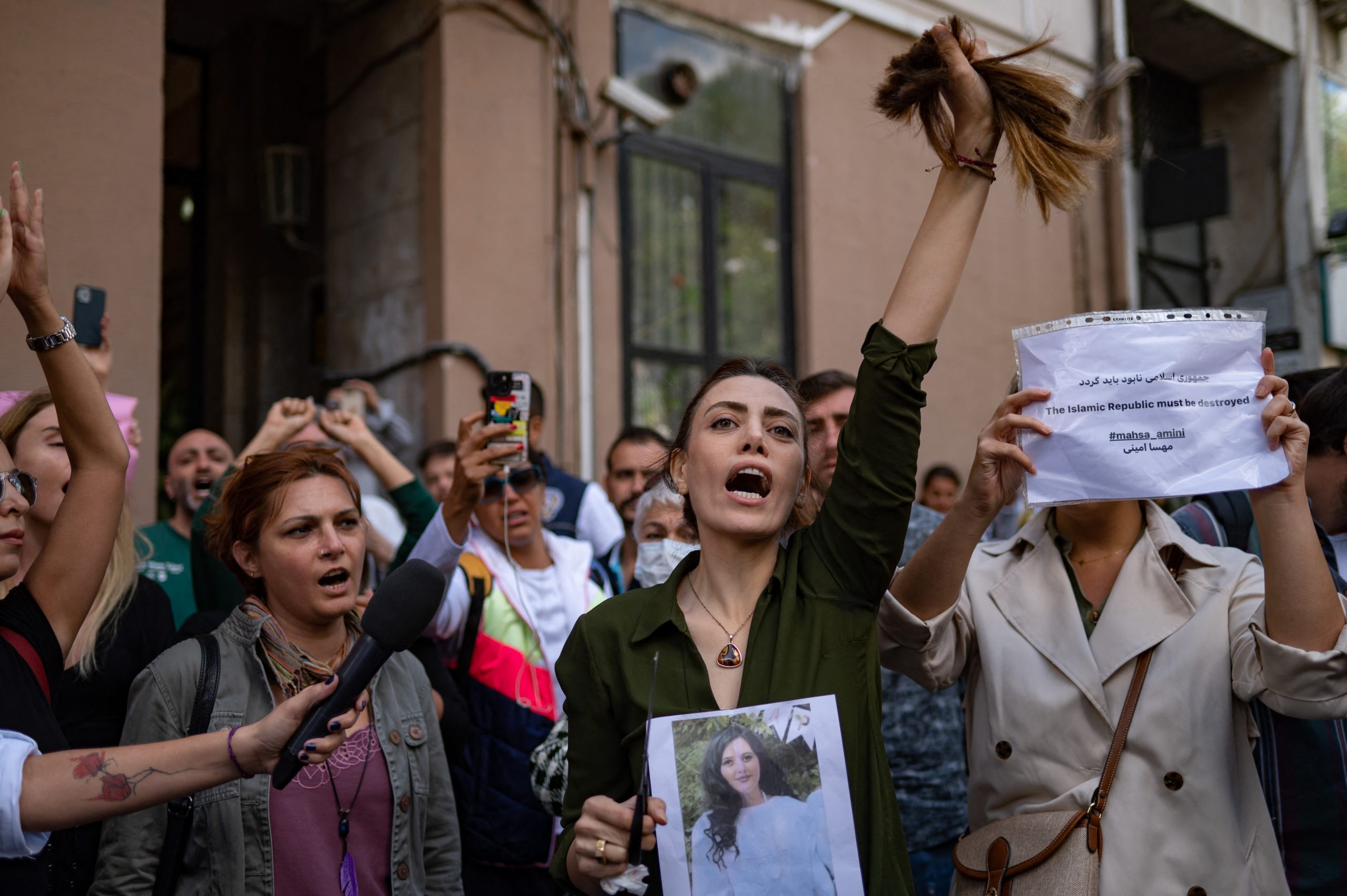
Viral protest footage shows women publicly removing their headscarves - a punishable crime in Iran, with many going on to burn their hijabs and cut off their hair. Men and women can be seen cheering them in their thousands and chanting, "Death to the Dictator".
Celebrity news, beauty, fashion advice, and fascinating features, delivered straight to your inbox!
"Hijab police killed Mahsa Amini but now there are millions of Mahsa in Iran," wrote Iranian activist Darya Safai as the protests began. "We will fight. We will win."
The protests have seen violent clashes between civilians and authorities, with riot police responding with tear gas and gun shots. Over 75 deaths have been reported so far, yet people continue to take to the streets in solidarity to send a message of defiance to the Iranian government.
This is undoubtedly a watershed moment. After decades of oppression, Iranian women are taking a stand in Mahsa Amini's name and calling for a freedom of choice over how they dress - and the whole world is watching.
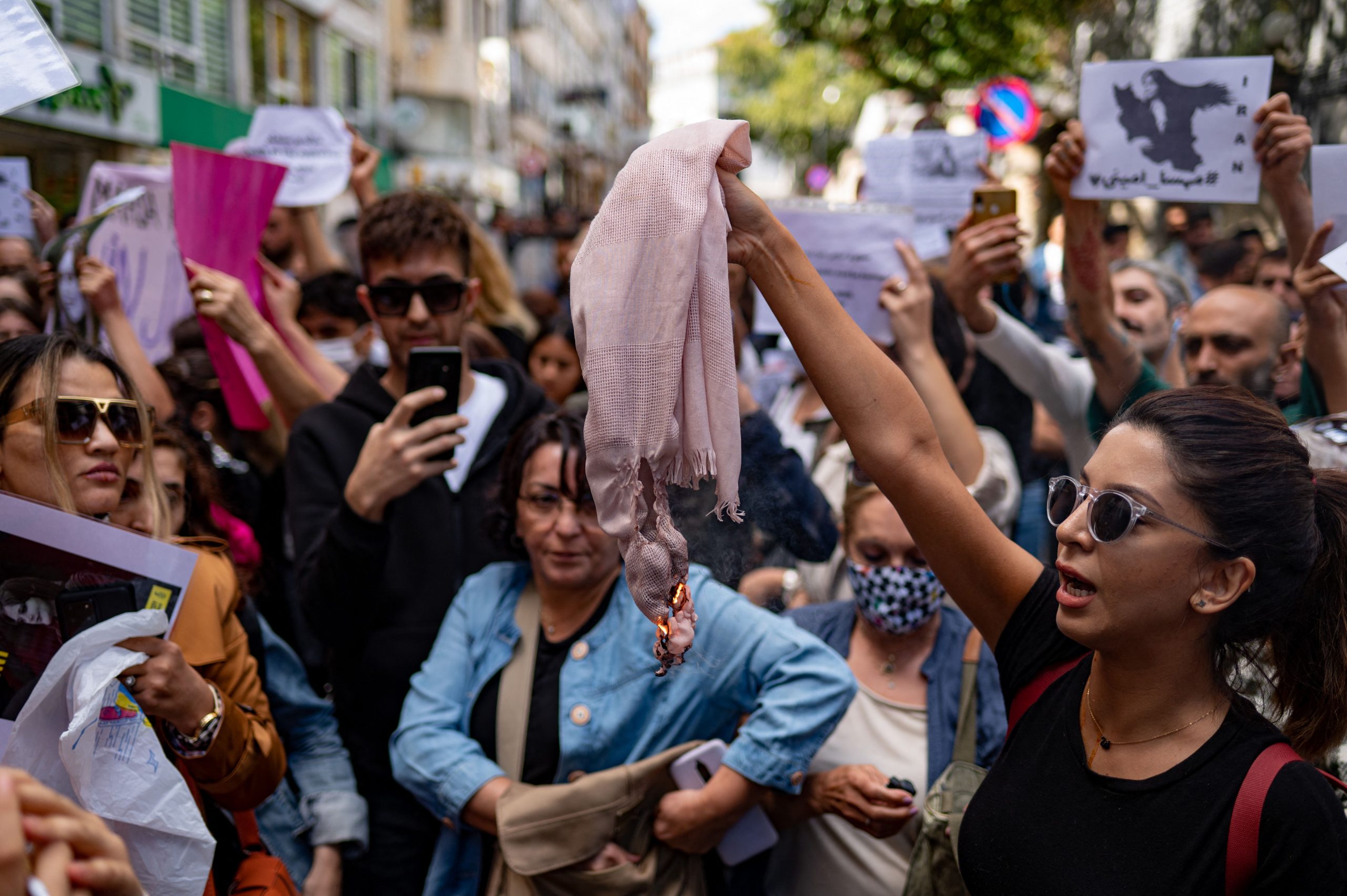
The internet has been one of the most powerful tools in their activism, with protest footage circulating on YouTube, and Iranian women taking to their social media platforms to remove their headscarves, share their stories, and ask for people to spread their message internationally.
In response, the Iranian government has enforced its most severe internet lockdown in years, blocking access to Instagram and WhatsApp, and completely shutting off the internet in several areas.
Iranian women are being silenced at the time when they most need to be heard, and it is up to all of us to be their voices and to keep the conversation going.
"I get hundreds of messages from inside Iran every day and all they're asking for is solidarity," explained Iranian actor and activist, Nazanin Boniadi via PBS News Hour. "They're asking for their voices to be amplified. The least we can do is stand with them.
"At this moment in history, we need to remember that when George Floyd was killed by police in America, there was global solidarity," she continued. "You saw images from inside Iran, from inside Syria - places where they themselves are in dire straits, showing solidarity. The least we can do in the West is show solidarity to the people inside Iran."
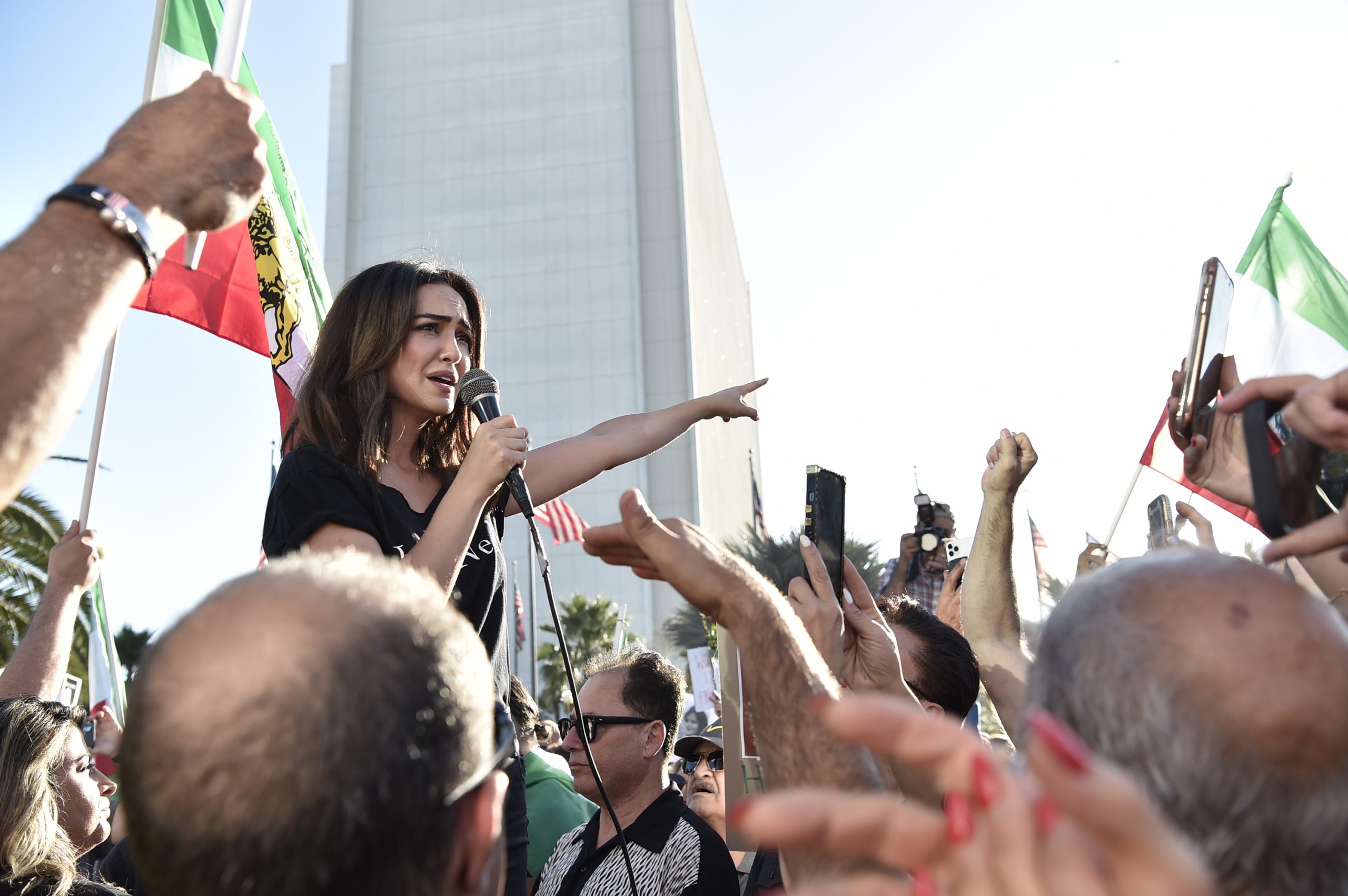
Mahsa Amini's grave reads the message, "You won’t die. Your name will become a code name", but in order for this moment to become a catalyst for change, we all have an important role to play.
Iranian activists have been calling for us all to take individual action - to contact our Minister of Foreign Affairs, organise demonstrations, make donations to organisations on the ground and share important up-to-date information. But crucially, they are asking for us to use our voices and to be a microphone for the women in Iran who have been silenced.
Speak out, share videos, recommend articles, post photographs and keep the important conversation alive and visible.
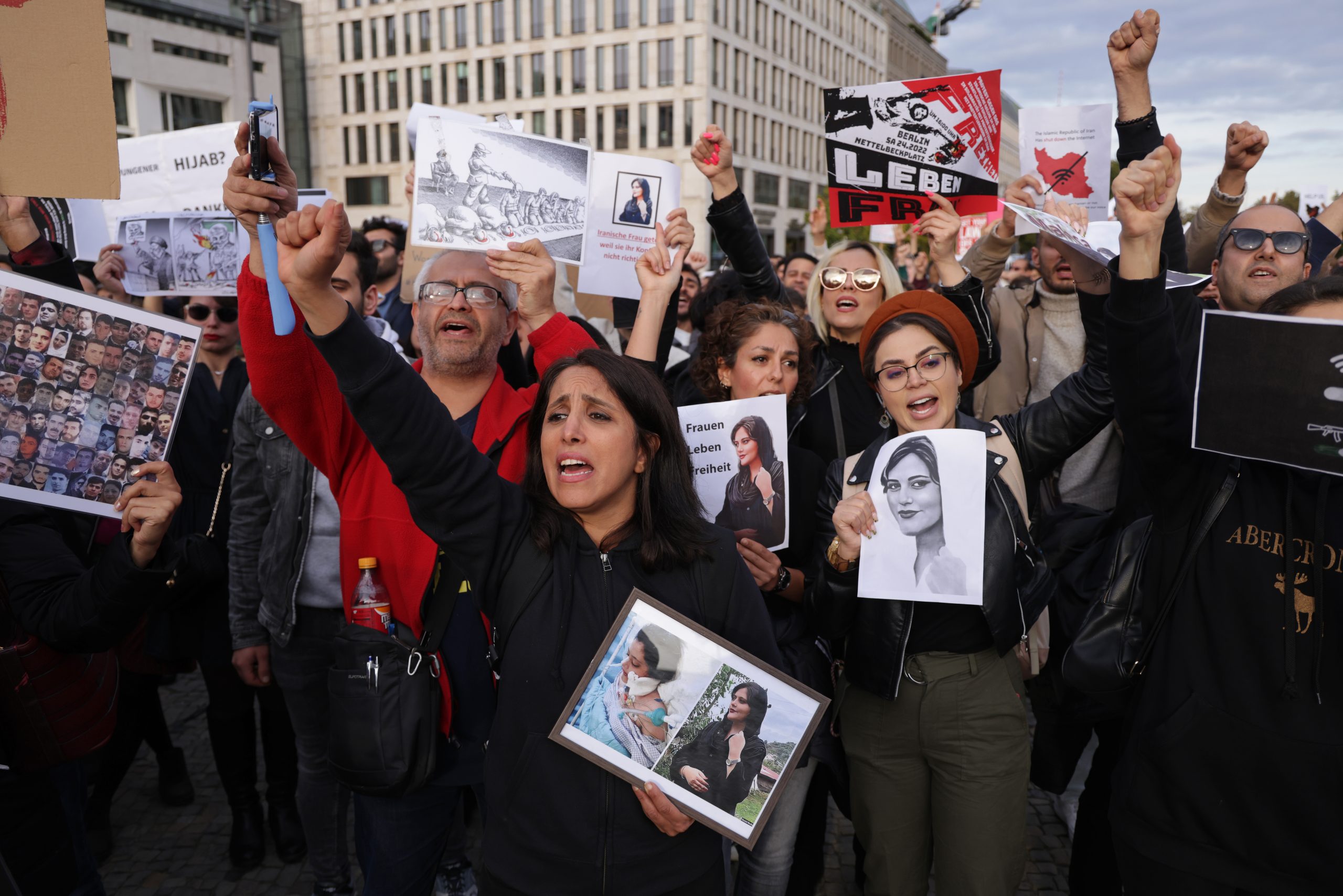
"I stand with the women of Iran and will amplify their voices from afar," announced actor and activist Jessica Chastain in a statement. "When one woman is attacked, it is an attack on us all".
It is our duty to use our voices to help the Iranian women who can no longer use their own.
We cannot let Mahsa Amini's name be forgotten. It is up to us to be her voice.

Jenny Proudfoot is an award-winning journalist, specialising in lifestyle, culture, entertainment, international development and politics. After working at Marie Claire UK for seven years - rising from intern to Features Editor - she is now a freelance contributor to the News and Features section.
In 2021, Jenny was named as a winner on the PPA's '30 under 30' list, and was also listed as a rising star in journalism.